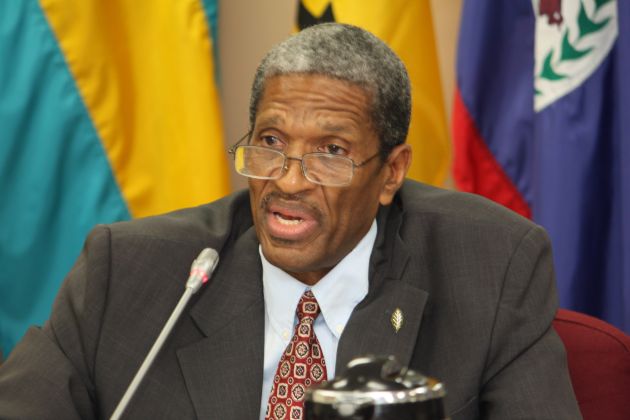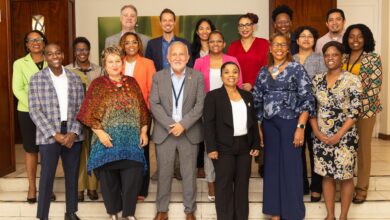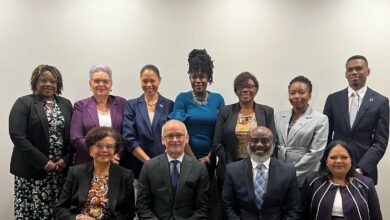I am very pleased, as Assistant Secretary General, Human and Social Development of the Caribbean Community (CARICOM) Secretariat, to deliver this message as the Caribbean joins the rest of the world in observing this auspicious day, 3 December 2020, International Day of Persons with Disabilities (IDPD).
The commemoration of this day has its underpinnings in the Convention on the Rights of Persons with Disabilities (CRPD). Adopted 13 December 2006, this landmark Convention was the first human rights treaty of the 21st century and according to the then UN Secretary General, Mr. Kofi Annan, it represented the “dawn of a new era” for some 650 million people worldwide living with disabilities. That number has since then grown worldwide, both regionally and currently, and it is estimated that 15% (one billion) of the world’s population are persons with disabilities of which 80% live in developing countries. We also know that people with disabilities living in developing countries are generally among the 15 to 20% most vulnerable and marginalised population and they are more likely to experience adverse socioeconomic outcomes than persons without disabilities. These adverse outcomes include less education, poorer health outcomes, lower levels of employment, and higher poverty rates.
Closer to home, in the Caribbean, people with disabilities comprise 10% of the Community’s population (World Bank 2011; PAHO, 1997) and from reports they also experience similar socio-economic challenges. The COVID-19 pandemic has significantly increased the hardship, exclusion, and vulnerability of people with disabilities living in the Community.
People with disabilities have been likened to citizens who are in ‘the shadow of life.’ As a Community, we are committed to provoking, encouraging, and facilitating a change in this reality such that those of our citizens who are in the shadow of life, no longer remain there. We must ensure that they are heard that they are seen that they are afforded a life of dignity, which is the inalienable right of every human being. These rights include but are not limited to equal opportunity, equal treatment, and full inclusion in mainstream society; it means recognising people with disabilities as assets, capable of, and willing to contribute to national and regional development.
In seeking to address the needs and concerns of people with disabilities, consideration must be given to public policy, legislation and the means of enforcement along with strong advocacy for and implementation of a whole of government, whole of society approach in order to be effective. It was with this in mind that the Thirty-Fourth Meeting of the Conference of Heads of Government in July 2013, Trinidad and Tobago, determined that priority attention be given to the concerns of persons with disabilities and mandated the convening of a High Level Ministerial Meeting to address this matter. The Meeting which was convened in December 2013 in Pétion-Ville, Haiti, resulted in the Pétion-Ville Declaration and the Community’s appointment of Dr. Floyd Morris as the CARICOM Rapporteur on Disabilities in 2018. The appointment of Dr. Morris signaled the commitment of the leadership of the region to honour its commitment to build and support a disability-inclusive society first articulated in the Kingston Accord (2004), reiterated and expanded in the Pétion-Ville Declaration.
I pause here to acknowledge and commend Dr. Morris on the outstanding work he has been carrying out in the region championing the rights of people with disabilities and, as the CARICOM Rapporteur, advancing the implementation of the Pétion-Ville Declaration. I also wish to congratulate Dr. Morris on the Award of Excellence from the University of the West Indies, Mona Campus for his contribution to Public Service and for his election to the United Nations Committee on the Rights of Persons with Disabilities.
This year’s theme ‘Building Back Better’ resonates with the spirit and intent of the Community to build back better and stronger economies, to build back better and stronger health care systems, to build back better and stronger education systems following the ravages the region has experience as a result of the COVID-19 pandemic. The focus on restoring and building resilience is a cross cutting theme in the CARICOM Results-Focused 2021-2022 Work Programme and Budget and the implementation of the Pétion-Ville Declaration is among the priorities.
There is no doubt that advances have been made during the decade since the adoption of the Convention. And in fact, it is heartening to know that 11 of the 177 countries that have ratified the CRPD are CARICOM Members. Nevertheless, if we are to achieve the 2030 Agenda for Sustainable Development which, inter alia, urges that we leave no one behind, then there is much yet to be accomplished. I therefore urge you, ladies and gentlemen, young men, young women, boys and girls of the Community, State and non-state actors, international development partners, regional institutions, to let us join hands and hearts and together with our brothers and sisters, mothers and fathers with disabilities build back better for them, a life with dignity, a disability inclusive society for all.
I thank you!!






